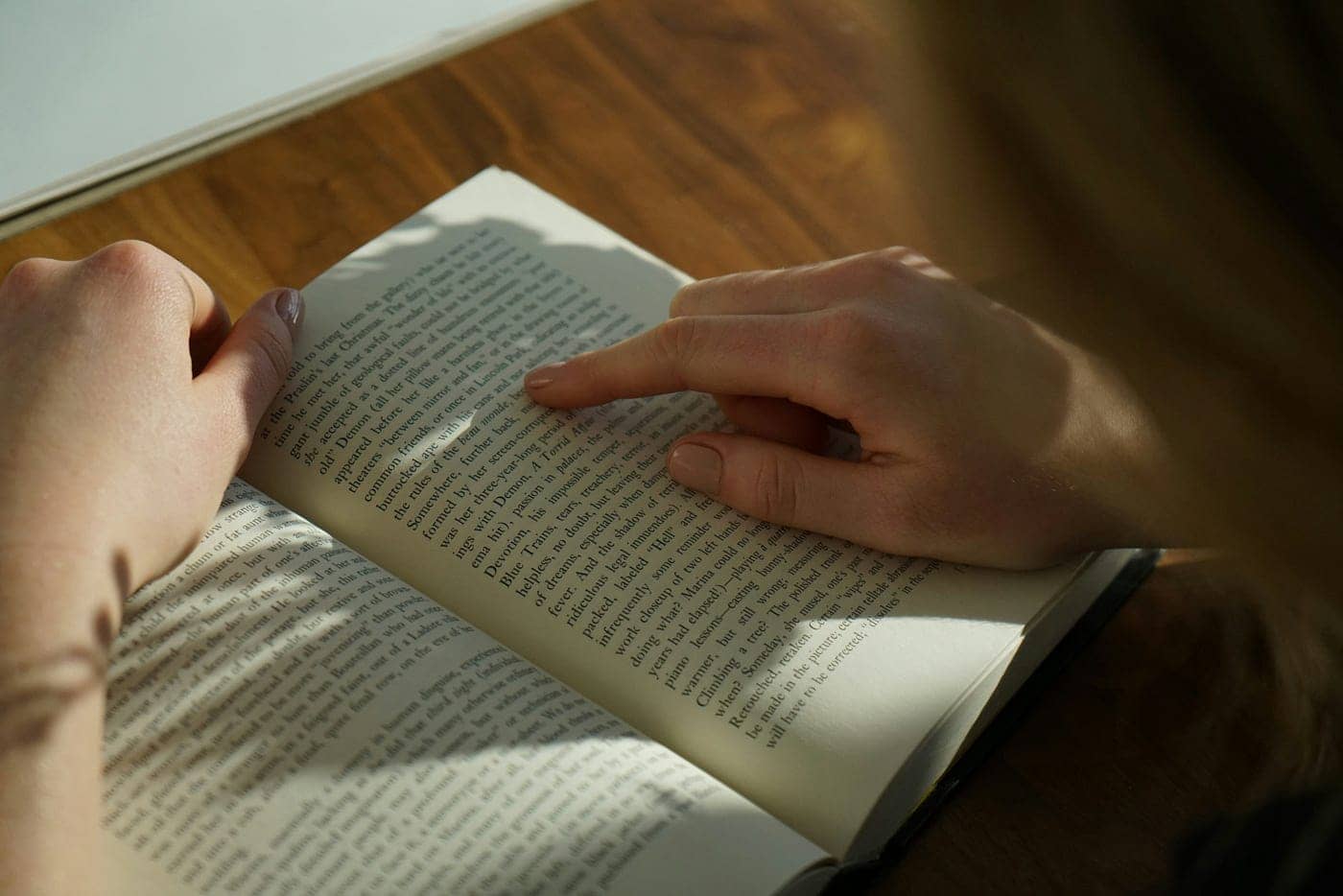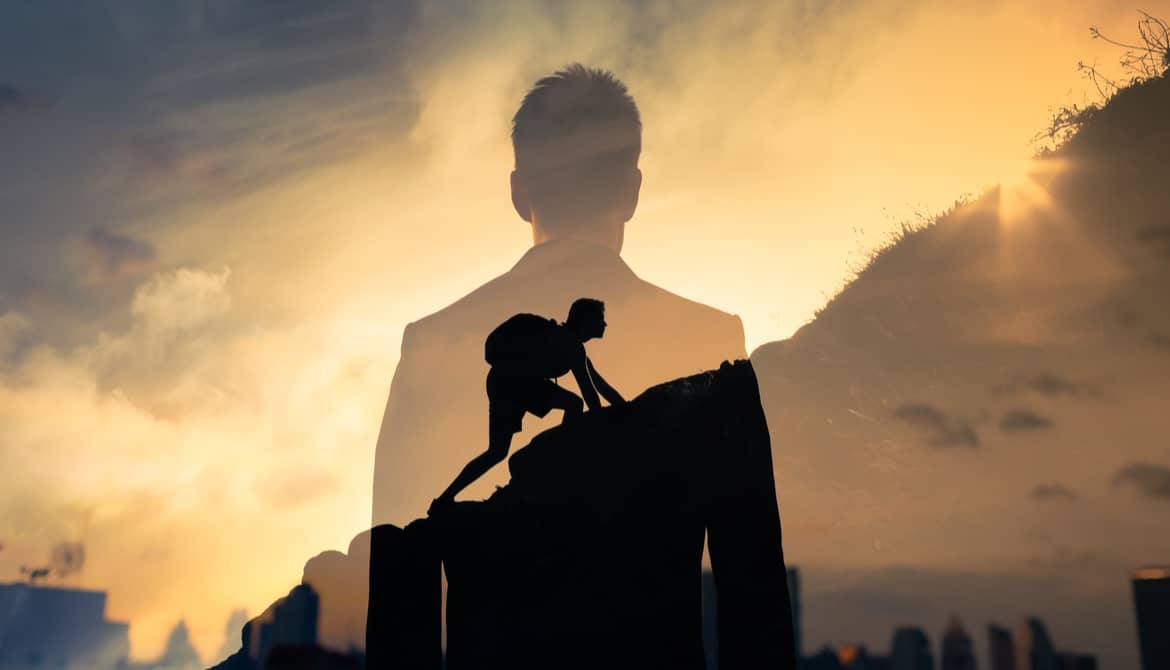Life-Changing Books:-I wasn’t always a big reader.
While I plowed through the first four Harry Potter books in middle school, and did all the required reading in high school and college, it wasn’t until I left university and was firmly settled into my mid-twenties that I began to take reading seriously.
I’ve written previously about quake books and quake reading. Quake books are books that change your life. They profoundly change your views or open up your mind to something new. The best life-changing books are by their very nature quake books, as they open you up to new possibilities and ways of thinking.
While the books in this list may not be the most entertaining books I’ve ever read (though some of them do absolutely fit into this category), they are the most life-changing books I have ever read.
Read on to discover 34 of the best life-changing books to read, whether you’re in high school, college, or you’re deep into your twenties, thirties, and beyond, and you’re looking to change the course of your life.
The Best Life-Changing Books to Read
Here is my list of the best life-changing books to read. I will update this list every year, so be sure to bookmark this page or subscribe to my free email newsletter to get notified whenever I add new books to this list.
Without further ado…
Deep Work: Cal Newport (296 Pages)
Deep Work is one of the most important books of my generation. While the general premise behind the book (“Work hard and you will be successful,”) isn’t new, the way that Newport relates this to the modern day, pointing out that if you do the work, success can come easier today than it ever did, is refreshing.
The Slight Edge: Jeff Olson (280 Pages)
I loved this book. Having read it over eight years ago, it would be an exaggeration to say that I still think about its principles every day; but every week? Quite possibly. The Slight Edge shows how your smallest everyday choices can have a dramatic impact on your life over the long term.
When Breath Becomes Air: Paul Kalanithi (208 Pages)
This is a devastating book. Kalanithi was a neurosurgeon based in Northern California who was struck by a terminal cancer diagnosis. An aspiring novelist, he wrote a memoir of this period of his life, a memoir that, ultimately, his wife had to finish on his behalf.
Why We Sleep: Matthew Walker (368 Pages)
I have been fascinated by sleep for as long as I can remember, reading countless books and studies on the subject. When I found out that Walker, a British scientist and professor of neuroscience and psychology (who I had read research papers by in the past), was coming out with this book, I got excited. It does not disappoint.
The 33 Strategies of War: Robert Greene (496 Pages)
This is a phenomenal book about war, military strategy, and, ultimately, how to make your way in life. Often placing third behind The 48 Laws of Power and Mastery, other works by Greene that receive honorable mentions here, when I interviewed Greene about his morning routine I let him know that this is my favorite of his works; a true unabashed masterpiece.
Grit: Angela Duckworth (368 Pages)
“No matter the domain, the highly successful have a kind of ferocious determination that plays out in two ways. First, they are unusually resilient and hardworking. Second, they know in a very, very deep way what it is they want.” If you’re in high-school or just getting started in college, Grit is one of the most life-changing books you can read to help you get ahead.
The Alchemist: Paulo Coelho (197 Pages)
The only work of fiction on this list (while I enjoy reading fiction, I primarily read non-fiction), The Alchemist is the classic tale of a journey toward a better place as the Andalusian shepherd boy, Santiago, embarks on the quest of a lifetime.
Frederick Douglass: David W. Blight (912 Pages)
I have read dozens of biographies about the American presidency (including a book called The American Presidency, which gets an honorable mention here). Rarely do I read about those on the fringes of the presidency, or in Frederick Douglass’s case, the fringes of society. I was sorry when this book came to an end, and you will be too.
Between the World and Me: Ta-Nehisi Coates (152 Pages)
Between the World and Me is one of those books that you will find yourself thinking about long after you finish reading it. This is the book that elevated Coates into the national and international spotlight, and when you read it, you will immediately see why. Coates is a phenomenal writer. Pick up this book.

Principles: Life and Work: Ray Dalio (592 Pages)
Ray Dalio founded his investment firm, Bridgewater Associates, out of his two-bedroom apartment in New York City in 1975. Over the years he grew Bridgewater into the “fifth most important private company in the United States,” according to Fortune magazine. In Principles: Life and Work, Dalio shares the principles he has learned over his long career.
The 7 Habits of Highly Effective People: Stephen R. Covey (372 Pages)
I love this book. First published in 1989, in this book the late Covey walks you through the seven habits that he has found can make you highly effective in your work, family, and personal life. Everyone who wants to be successful should read this book.
Thinking, Fast and Slow: Daniel Kahneman (499 Pages)
Great, if somewhat dry, book that explores Kahneman’s famed System 1 and System 2 approach to thinking. “System 1 operates automatically and quickly, with little or no effort and no sense of voluntary control. System 2 allocates attention to the effortful mental activities that demand it, including complex computations. The operations of System 2 are often associated with the subjective experience of agency, choice, and concentration.”
Meditations: Marcus Aurelius (304 Pages)
I was turned on to Meditations, as were so many in this modern age, by the author Ryan Holiday. Pick up the Gregory Hays translation if you can—Hays is masterful in the way that he makes this former Roman Emperor’s writings to himself seem as approachable and modern today as they would have felt almost 2,000 years ago.
The New Jim Crow: Michelle Alexander (290 Pages)
This book opened my eyes. It is dry, there is no getting around that, but if you persist you are rewarded with knowledge that will help you view the criminal justice system with fresh eyes. An honorable mention goes to Whatever It Takes by Paul Tough, which focuses on those individuals who are trying to keep our kids out of the criminal justice system in the first place.
The Power of Habit: Charles Duhigg (286 Pages)
Whenever I’m asked in interviews what got me into writing about morning routines, and eventually publishing a book on the subject, I tell them that the catalyst was reading The Power of Habit for the first time, over seven years ago. If you want to know how you can form new healthy habits, and break unhealthy ones, pick up this book.
Team of Rivals: Doris Kearns Goodwin (754 Pages)
I read a lot of long historical biographies. While the vast majority of them are a joy to read, few can be called life-changing, which is why I made a conscious choice to only include two in this list. Honestly, you will not regret picking up anything by Kearns Goodwin, with honorable mentions also going out to the work of David McCullough and Walter Isaacson.
The Year of Magical Thinking: Joan Didion (240 Pages)
This is an extremely touching book that follows Didion in the year after her husband’s death. I didn’t expect to like this book as much as I did; Didion’s stunning writing serves as a course in the art in itself, and her ability to find light at the end of the tunnel made for a heartwarming read.
I Will Teach You to Be Rich: Ramit Sethi (352 Pages)
Ramit Sethi has been in the personal finance game for a long time. I first read this book over 11 years ago, and while I enjoyed it, it wasn’t until my wife read the updated re-release last year that I decided to give it another go—and I’m glad I did. While there are many life-changing personal finance books out there, Sethi is unique in his ability to show you what really matters when it comes to building wealth.
Perennial Seller: Ryan Holiday (248 Pages)
Perennial Seller is a practical book more akin to Holiday’s Trust Me, I’m Lying and Growth Hacker Marketing than his works on stoicism. Holiday’s clear gift for writing is as evident here as ever, and I poured through this book twice, once on vacation and once, a year later, while taking copious notes as I was preparing for the launch of my first book.
The Life-Changing Magic of Tidying Up: Marie Kondo (224 Pages)
Kondo’s breakaway success with this book unfortunately led to much ridicule based on the title alone, which given that Kondo herself spoke very little English at the time of the book’s English-language release, can hardly be placed at her door. The thing about this book is, it’s actually very good, and it will change the way you think about “things” and how many of these “things” you need. Highly recommended.
I Know Why the Caged Bird Sings: Maya Angelou (246 Pages)
Angelou’s poetry seeps out of every page of, I Know Why the Caged Bird Sings. While there’s a chance that you read this during high school, I strongly recommend coming back to it as an adult. Don’t let this book’s popularity put you off; it deserves all the acclaim it gets.
The Checklist Manifesto: Atul Gawande (208 Pages)
I picked this book up at a thrift store after it has been on my “to read” list for well over a year. The Checklist Manifesto is an extremely readable book about the importance of, well, keeping a checklist whenever you need to perform a complex task with absolute perfection. This book changed my thinking on checklists, which I’d imagine is a win in Gawande’s eyes.
Aesop’s Fables: Aesop (306 Pages)
Credited to the enslaved Aesop, who lived in Ancient Greece between 620-560 BC, you already know many of Aesop’s Fables, including The Tortoise and the Hare, The North Wind and the Sun, and The Boy Who Cried Wolf.
The Magic of Thinking Big: David J. Schwartz (238 Pages)
I did not expect to enjoy this book as much as I did, but I quickly found myself highlighting it within an inch of its life. The book is best summed up by this line “Big ideas and big plans are often easier, certainly no more difficult, than small ideas and small plans.” Read this book if you have big plans.
Talent is Overrated: Geoff Colvin (240 Pages)
“Deliberate practice requires that one identify certain sharply defined elements of performance that need to be improved, and then work intently on them,” say Colvin in Talent is Overrated. While this is easier said than done, this book shows you exactly what it takes to be great in your chosen field.
Tiny Beautiful Things: Cheryl Strayed (304 Pages)
One of the lines that I highlighted in this book was “Trusting yourself means living out what you already know to be true,” and this would have been a great title for this book. Tiny Beautiful Things is a collection of letters and replies from Strayed’s famed (though at the time, anonymous) Dear Sugar column. If you think this book is not for you, it almost certainly is.
The Pleasures and Sorrows of Work: Alain de Botton (336 Pages)
“When does a job feel meaningful? Whenever it allows us to generate delight or reduce suffering in others.” Full of witticisms, The Pleasures and Sorrows of Work attempts to make sense of the modern workplace, while asking why it is that we do the work we do.
Influence: The Psychology of Persuasion: Robert B. Cialdini (320 Pages)
How can you get people to say “yes” to whatever it is you ask of them? In Influence, Dr. Cialdini, who worked for thirty-five years in the fields of influence and persuasion, breaks down how you can become more persuasive, and how you can recognize when someone is trying to persuade you.
Spark: John J. Ratey (304 Pages)
“If exercise came in pill form, it would be plastered across the front page, hailed as the blockbuster drug of the century.” We all know that exercise is good for our physical and mental selves, but did you know that exercising can also make you smarter? This book changed my thinking around exercise.
Bird by Bird: Some Instructions on Writing and Life: Anne Lamott (237 Pages)
I heard about this book five years before I finally picked it up. Bird by Bird is truly a life-changing book. Reading Lamott’s concept of “shitty first drafts” for the first time truly was a life-changing moment. If you’re a writer, or you have aspirations of becoming one, pick up this book. An honorable mention goes to The War of Art by Steven Pressfield.
Peace Is Every Step: Thich Nhat Hanh (160 Pages)
“We are very good at preparing to live, but not very good at living.” In Peace Is Every Step, Thich Nhat Hanh, a Vietnamese Buddhist monk and peace activist, explores how we can experience peace within every facet of our daily lives.
Feel The Fear And Do It Anyway: Susan Jeffers (272 Pages)
I first read this book over 12 years ago, yet while looking through my reading list for this article I knew I had to include it in this list. I love books that tell you what they are by their title alone, and this is no exception.
Sapiens: A Brief History of Humankind: Yuval Noah Harari (443 Pages)
In Sapiens, Harari spans the length of human history, looking into everything from how homo sapiens beat out five other human species that were on the planet at the same time as us, 100,000 years ago, to how we moved from foraging communities to becoming the citizens of great kingdoms and cities.
Man’s Search for Meaning: Viktor E. Frankl (192 Pages)
After surviving Nazi death camps, Viktor Frankl went on to write Man’s Search for Meaning, a memoir that “argues that we cannot avoid suffering but we can choose how to cope with it, find meaning in it, and move forward with renewed purpose.”




